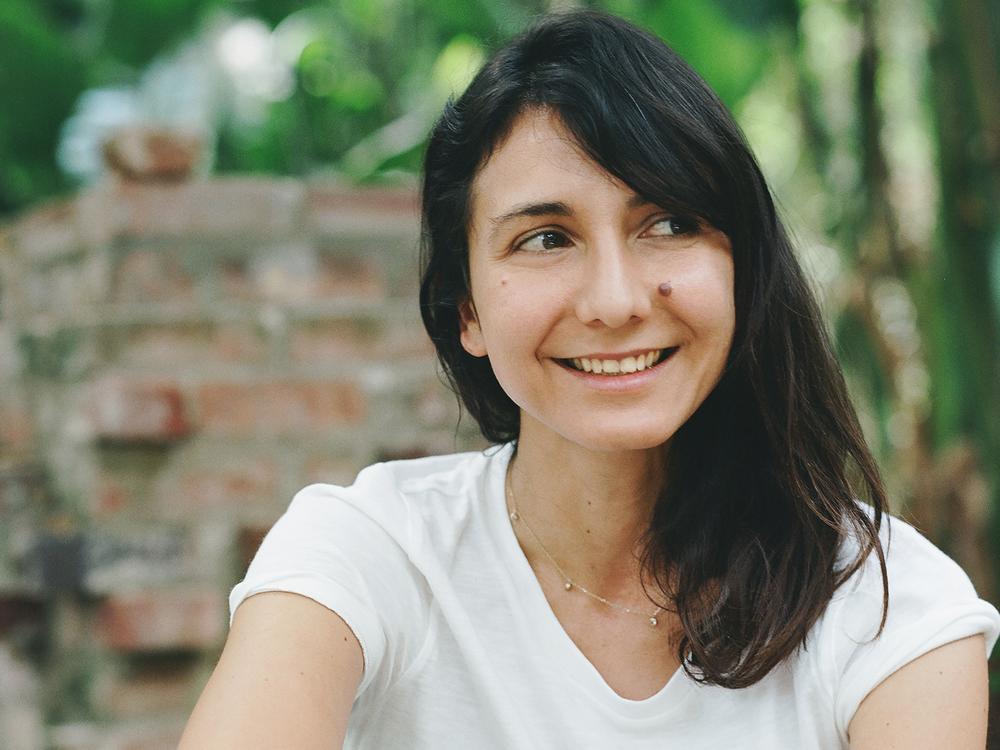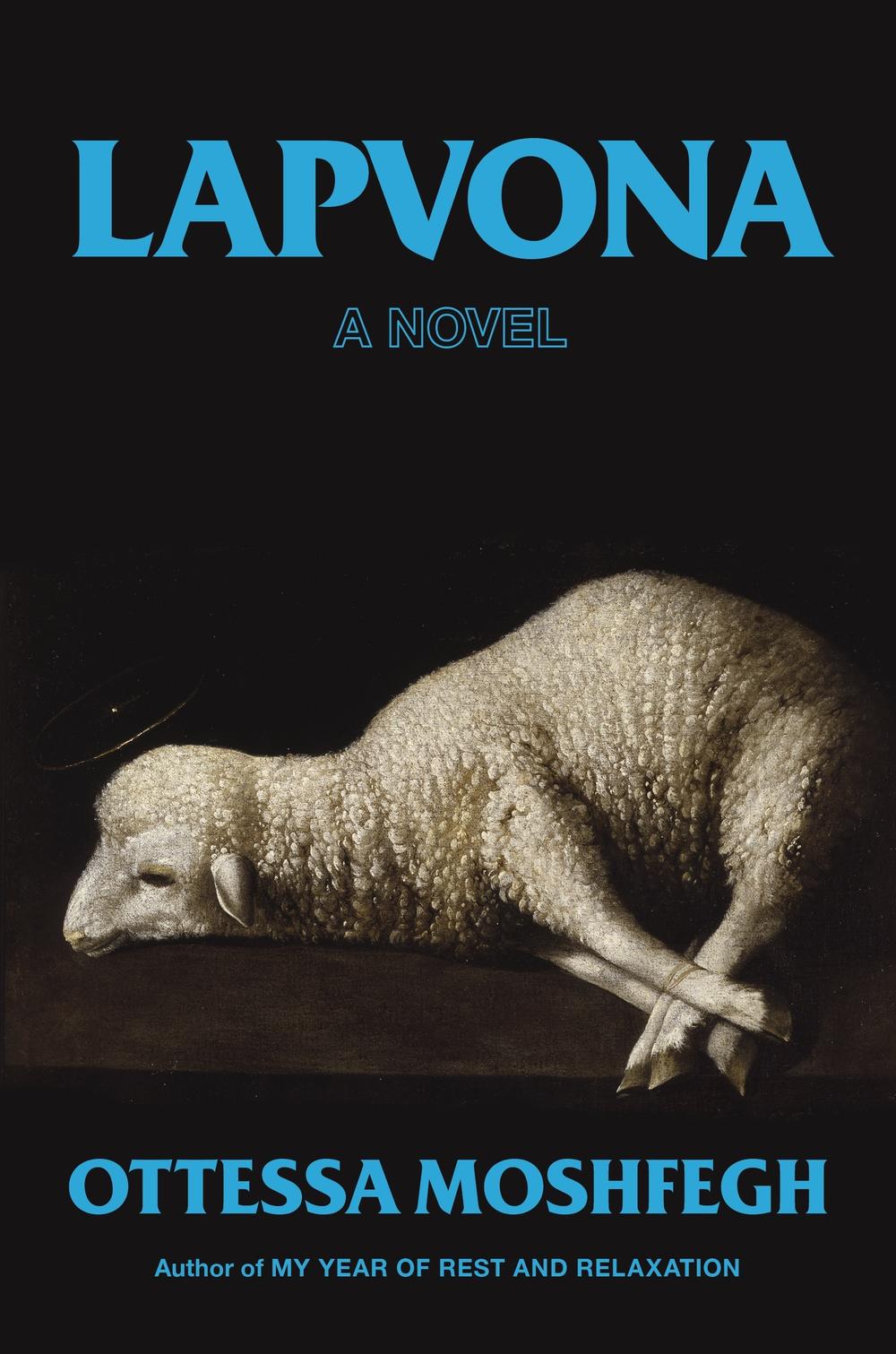@emmyslibrary ottessa, u are inside my brain 25/8 #booktok #fyp #myyearofrestandrelaxation ♬ original sound - cc💋
Section Branding
Header Content
Ottessa Moshfegh's year of death and internet clout
Primary Content
Ottessa Moshfegh has never killed anyone. And she never wants to. Never, ever.
"But for a really long time I felt like I had killed someone," the author said in an interview. "And I would have nightmares about the guilt of having killed someone."
This is the nugget of the idea that would become her latest novel, Lapvona. It takes place in a fictional medieval European village, where violence is rampant and resources are scarce (unless you are, of course, among the ruling class).
The book is just the latest entry in Moshfegh's current rise to literary fame. Over the course of the pandemic, her second novel, My Year of Rest and Relaxation, about a woman who tries to drug herself into sleeping through an entire year, became a hit – particularly among the bookish on TikTok. A Hollywood adaptation of Relaxation is in the works currently, but first the film adaptation of her debut novel, Eileen, is set to come out. But the come up hasn't stopped her from digging even deeper into what's become something of a signature style – writing in beautiful detail about the gross and disgusting. Which, for her, is just a way of writing about being alive while knowing you're going to die.
In her mind, she said, "there are two suitcases that I carry." In one suitcase is her thoughts about death as seen through the idea of God and infinite light and mystery. In the other is her thinking about death as seen through corpses and guts and bodies.
"I think after writing Lapvona, the suitcase full of dead bodies is a little lighter," she said.
The novel starts with a young boy named Marek who kills another boy – the prince of Lapvona. Someway, somehow, Marek ends up taking his victim's place in the royal family. It was this central question – How do you live as the replacement for someone who died? – that Moshfegh kept thinking about. She ties the idea to her brother, who died of an overdose in 2017.
"When he left, a part of me sort of snapped back into place," she said. "As though I had been sharing a bubble and then half of it disappeared. And so the bubble snapped closer around me."
Lapvona is heavy on themes of guilt, religion, and oppression. It's also obsessed with the body; what it, and all the various juices it excretes, tastes like and feels like and smells like. Seeing as we're talking about medieval peasants, the answer is, generally, "not great." One character, Ina, is hundreds of years old, and served as the wet nurse for the village. In an early passage, young Marek (who's own mother is dead) goes to visit her after being beaten by his father. He cuddles up next to her, and finds comfort in some old habits.
He felt at home. He knew every inch of Ina's body by heart: her face like a desiccated apple, her large drooping ears, her pale and tender scalp, the billow of white hair fixed stiffly on top. He knew her breasts, of course, and her arms, and her wrinkled belly. Ina's pubis was covered in thin white hairs as soft as fine grass. She looked like an angel to Marek.
The passage goes on to describe an almost sexual charge between them. It's gross and icky and weird, but also kind of tender and sweet.
"I'm pointing out the line between what is sensual and what is sexual," Moshfegh said. "My niece can hold my hand and it feels so sweet and loving. And a stranger could hold my hand and it could feel like....ew, don't touch me."
There's a lot more ew in Lapvona. Too much, for plenty of book reviewers. "It's too violent to be funny, and too silly to be meant as anything else," read one New York Times review. "There is no enlightenment in these pages," wrote NPR's Maureen Corrigan. "For all its technical mastery, there remains something deeply juvenile about Moshfegh's fiction," wrote Andrea Long Chu in a particularly brutal takedown from Vulture.
Moshfegh, who generally doesn't read reviews of her work, was piqued by the response. "It seemed to me like the book was kind of an occasion for people to be creative in criticizing it," she said. "It seemed to inspire a lot of creative bad reviews. And I think that made me feel really used."
But you don't inspire haters unless you've amassed a fanbase. Which Moshfegh has. Take a cursory scroll through Moshfegh-adjacent tags on TikTok and you're bound to run into a certain genre of fan who uses Moshfegh as a way of signifying an ironic detachment that's...maybe not that ironic and not all that detached.
"I think there's a feeling that it's a rebellion of sorts, or that it's something men don't understand," said Eleanor Stern, a writer who makes TikToks about books and literary criticism. "I think it's at once thought of as subverting norms of femininity and thought of as a type of in-group feminine bonding experience."
At the center of whatever it is that Mosfhegh symbolizes on TikTok is her book My Year of Rest and Relaxation. That book's unnamed narrator is aloof and selfish, and she tries to self-medicate herself into a daze for an entire year. It's an attractive character for those who have been driven to nihilism by massive global changes beyond their control.
"The idea of the 'unhinged woman' is really having a moment right now in fiction, and I feel like it's in large part due to her catalog of work," said Rachel Fucci. She's a 26-year-old Moshfegh fan who attended a recent book event for the author in Brooklyn. In a follow up interview, she told me "there's something about basking in the moroseness of one's own feelings, one's own ennui, and one's own helplessness in the face of a world that feels kind of like it's out to get you, that I think a lot of young people really relate to... And it's no secret that young teenage girls are responsible for making everything cool."
For this specific type of cool, though, it used to be that you had to play coy about using cultural products as clout. But not anymore, said Stern.
"The TikTok literary branding is a really explicit version of that, where you can come right out and say that you're reading something because you want to be thought of as the type of person who reads this book."
Moshfegh is grateful for her fans, but from a distance. She's the type of person who can't look at social media or else she'll start obsessing. But becoming this signifier of coolness or unhingedness or rebellion doesn't sit comfortably with her. It makes her feel vulnerable. Having to hear from people like me that people are talking about her?
"That doesn't feel good," she said. "If I'm actually going to be 'an icon,' it's a big responsibility. And it seems more to do with the image of me than who I actually am. And then, ugh, I don't want to have to worry about what I look like in this new way."
She brought up a recent GQ profile of the actor Brad Pitt that she had written. In the article, they hang out at his house and talk about art and poetry. He offers her some nicotine mints, and gets her a bottle of water. Here was this guy who exists for so many other people as an idea of "celebrity." And here she witnessed that paragon being a vulnerable human, cutting through Moshfegh's own preconceived ideas of him. She said it was actually scary for her, to watch someone carry that.
"I don't wish fame on anyone," she said. "I'm sure there are people who are built for it. But those people, I don't understand them."
Copyright 2022 NPR. To see more, visit https://www.npr.org.


